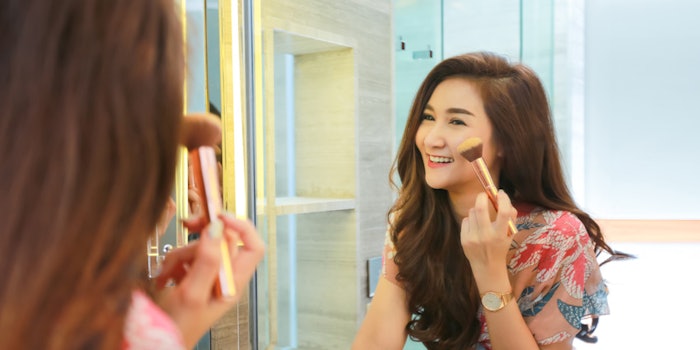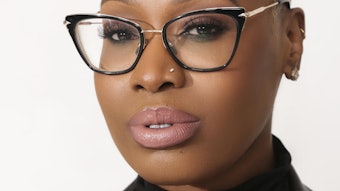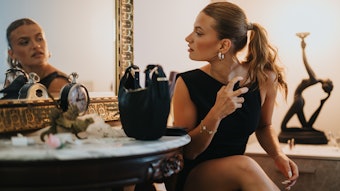
Skin care, beauty, cosmetics and other related wellness products represent growing markets that are each worth billions of dollars globally. Between the fact that there are few barriers for entry into these markets and that it’s easier than ever to build and advertise a brand, it’s enough to make anyone want to jump on the bandwagon.
As that reality plays out, and thousands of new sellers join the market annually, we see many new entrants gravitate toward doing a product that is trending. In other words, simply trying to capitalize on a current trend or trending beauty idea.
Generally speaking, this can be an easy way to grab a small piece of market share. Not all trends are created equally, though. Beauty and skin care both have a long history of particularly questionable trends that sometimes border on downright dangerous, from white lead makeup and tapeworm diets to fashion braces and non-corrective circle contact lenses.
In a way, it’s to be expected. For something to become a trend, it has to be shared quickly, broadly and almost indiscriminately. That’s fine when there are no underlying problems or dangers involved, but all too often there are. What’s worse is that once they stick, they’re hard to unstick. From tanning to steroid use, a range of trends with well-documented negative side effects are still widely embraced today.
Use Your Best Judgment
The lesson for those in the industry (and even for consumers) is to not blindly trust trends. Just because others are doing it—or just because a well-known brand is marketing it—doesn’t mean it’s a good idea. From a consumer perspective, you want to be skeptical about what you put on or in your body. From an industry perspective, you want to be skeptical about what trends you want to participate in.
But what’s even better than healthy skepticism? Proactively starting your own trends; ones that you know are safe, healthy and sustainable. Here’s how.
Start With Curiosity
What burning questions do you have or hear from others all the time? What types of products do people always seem to be complaining about? What do you wish existed, but can’t find anywhere? Maybe you’ll find the answer while sitting and staring in the mirror or while reading about the discovery of a new species in Madagascar.
My wife approached me to create a skin cream for her (before she was my wife, she was a client). She wanted it to be organic and natural and a bit different, but didn’t really know where to start. My wife is an Aussie, so I thought it could be a cool idea to search for natural ingredients from the land down under.
While researching unique ingredients from Australia and New Zealand, I discovered an amazing type of honey called manuka. It wasn’t well known at that point, but its healing properties had been studied worldwide. I decided it would be a great ingredient to be the cornerstone of a new skin cream. The rest is history; the product became a great success, there have been dozens of brands jumping on the trend and our line grew to be a multi-million-dollar brand.
We created a trend instead of following one.
Do Your Research
Ironically, we live in a world where knowledge is in infinite supply, but not everyone wants you to have it. For instance, most doctors don’t want you to Google your symptoms. Not because it’s a bad thing to do, but because it often makes their job harder when they have to convince you that your aches, pains and other symptoms aren’t actually signs of imminent death or disability. And think about the marketing departments of huge companies like Coca-Cola or Nestlé. The last things they want you to think about in-depth are the real health consequences or climate impacts of their businesses.
However, that information is available to anyone who wants it. The internet gives us more access to quality journalism than any previous generation has had. Firsthand scientific research is increasingly available to the public via open-source journals. When you do research, consider your methodology and aim to get the most informative, least-biased information you can. Often, little gems of knowledge that jump start a major trend are hiding right under our noses.
Educate People
If you stumble on something you believe could be the next big thing—whether it’s a product, service or idea—the next step is to make it by bringing it into existence in the real world, while shoring up your ability to produce it once the craze catches fire.
Once you’ve done this, share your next big thing as far and wide as possible. First, tell your friends and family. Share on social media. Make videos, memes and get other people talking about it. Find influencers or create them. Write stories, blogs, etc.
Beware, though: this is the hardest part. While amazing new things and ideas are brought into the world every day, getting people to pay attention to them can be another story. There’s no precise secret for making something go viral, but we can certainly learn from success stories. Plus, technology is on your side. If you’re willing to put yourself and your ideas out there, there’s a chance you’ll reach millions, or even billions, of people.










